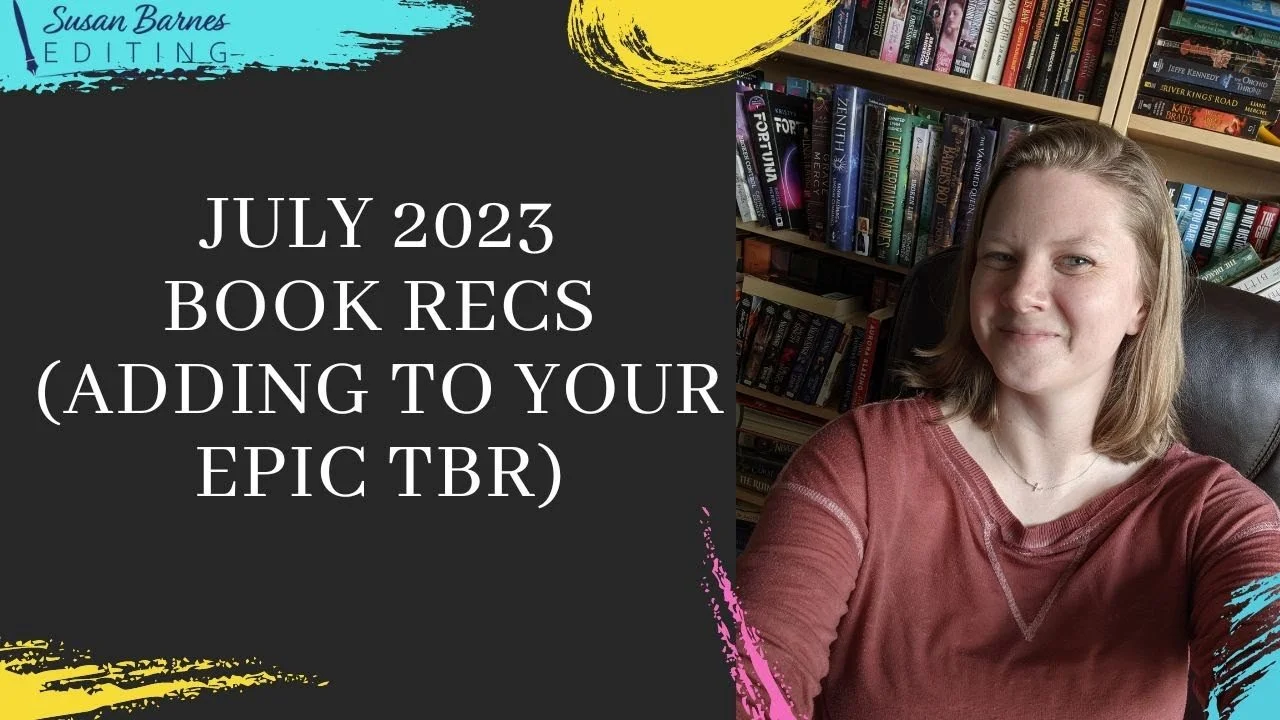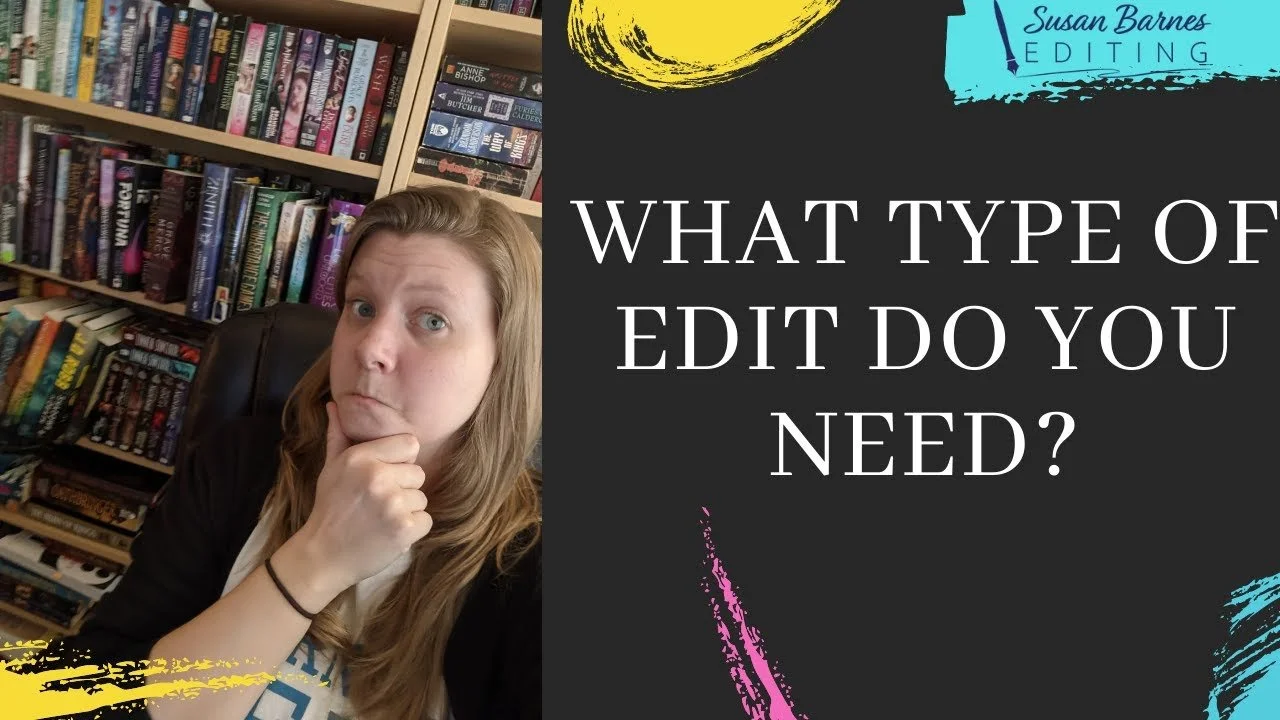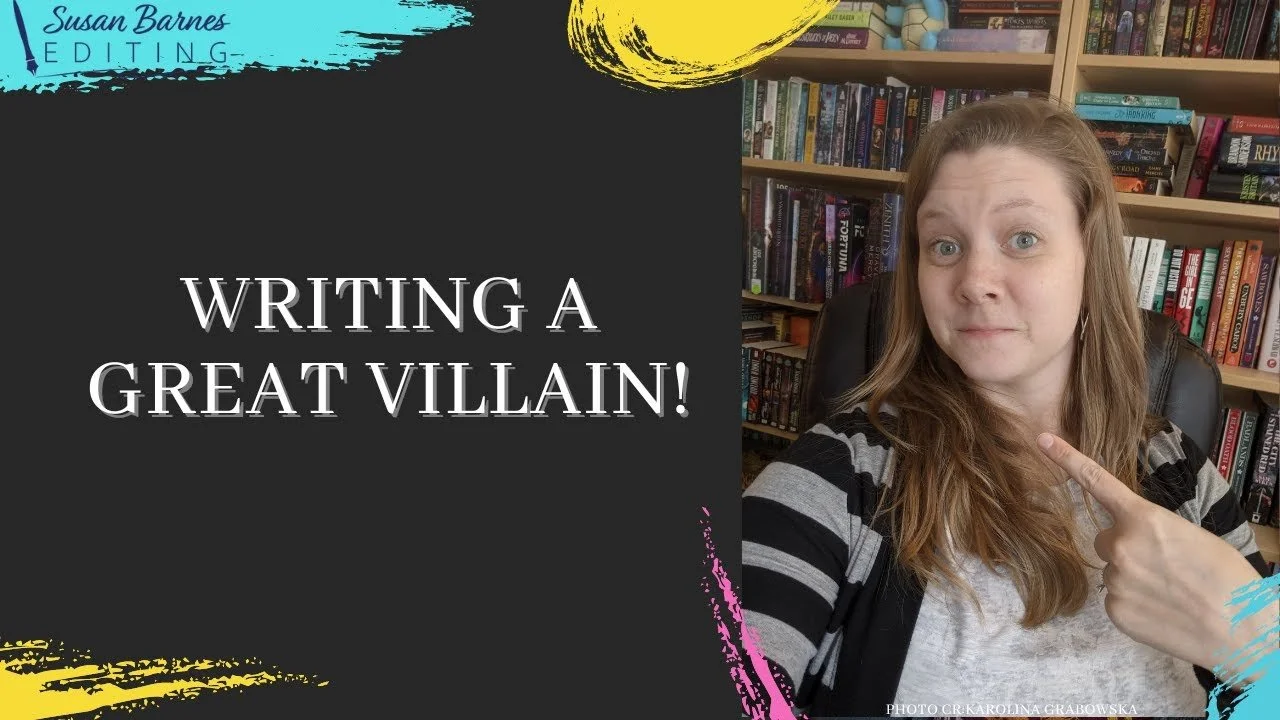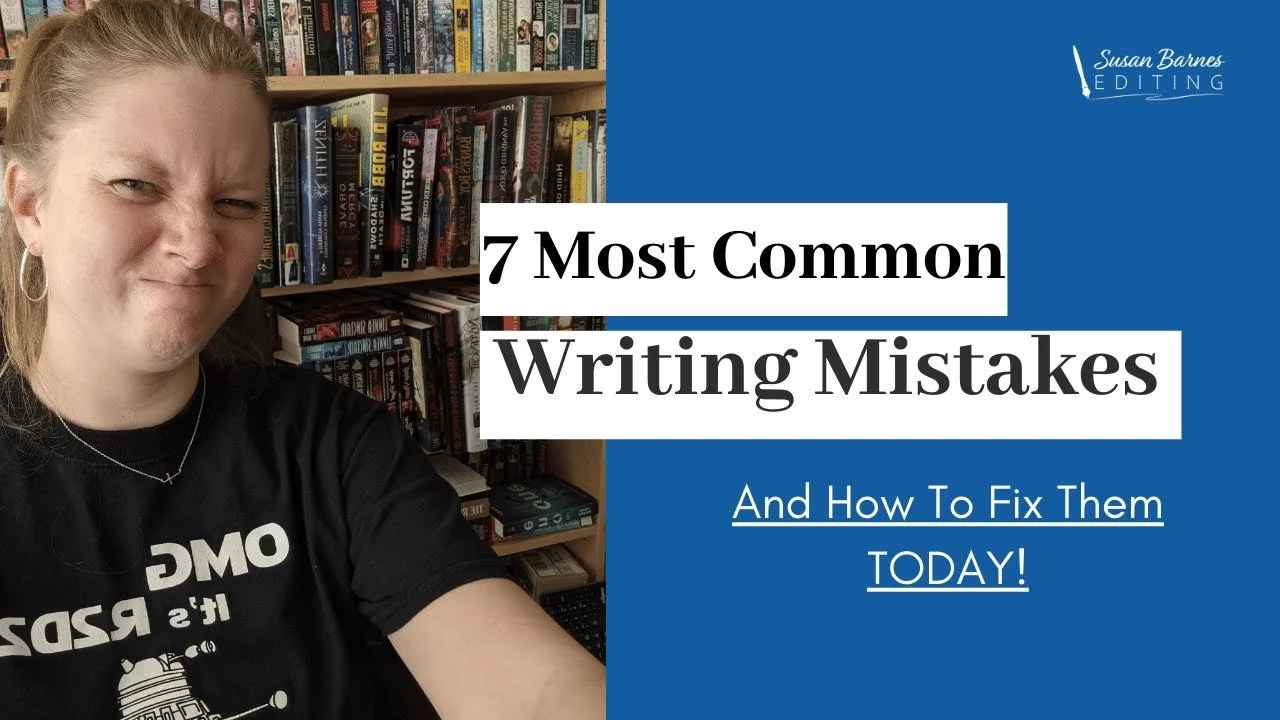July 2023 Book Recommendations
Welcome back, everyone. If you’re new here, my name is Susan and I’m a freelance editor, specializing in sci-fi, fantasy, and romance.
As always, there are some phenomenal books coming out this month. Weirdly, three of the four that I’m recommending this month are all out on the 18 th ? So I’m going to hide away from the world that week!
Renew Your Why – Halfway through 2023!
Most of your goals are most likely about writing or finishing a book. Which is an amazing goal. And a big goal. But it can be daunting, especially once the newness of the goal or the book idea wears off.
So the biggest thing you want to keep in mind is why you want to do it. What is driving you to write a book? Why that story?
What are Microgenres? And Why Do Authors Need To Know?
If you are a fan of this channel, you’ll know we talk a lot about identifying your story genre, being familiar with it so you can either follow or bend genre expectations. Making sure you are giving the reader what they want and able to market your story correctly to get your book to those demanding eyes and ears.
But within this, there is a new term on the rise — Microgenres.
Previously a popular term mostly in the music and movie community, the book world is now adapting it for their purposes as well. So what is a microgenre?
Let’s discuss!
Intro: Michael Hague's Six-Stage Plot Structure
A lot of questions that I get from authors and a lot of edits that I give come from questions on story structure because story structure is quite literally the bones of your story. Understanding it and using it correctly in your novel is key to making sure your book is as strong as it can be.
I can’t hit all the story structures in one go, so I thought it would be helpful to start with the one I use most in my editing and with the authors that I work with, which is Michael Hague’s Six-Stage Plot Structure.
What Type of Edit Do You Need?
One of the first steps in my job as editor is making sure my authors are getting the type of edit they need for their book.
Because there are a variety of different services, different edits, that you can have your book go through, and no one process is the same, or right for every author.
So let’s talk about what you should consider as you start the editing process and figure out how you should move forward with your story.
A Guide to Writing a Great Villain
So much of the focus of writing a book goes into crafting the main characters, but what about the villain? They are arguably just as important, if not more so – the other half to the main character’s whole.
But writing a truly powerful villain (pun intended) is about more than just creating an evil character.
So let’s dive in! 4 things to make a truly great villain. And at the end, some of my top villains!
Reading Outside Your Genre
Last week, we talked about reading comparable titles – what that means and why.
But something that doesn’t get talked about much, but is arguably almost as vital, is reading outside your genre.
I know what you’re thinking – Susan, you just went on a rant last week about how important it is to read in my genre, read comps, and learn from them. And now you’re telling me to do the opposite?
Yes, yes, I am. Book research, market research, like everything in writing and publishing, is about balance.
It is key to know what is going on in your genre. No question.
But if you stop there, you’re going to have tunnel vision—only seeing what is right in front of you. And that can hurt your career almost as much as not knowing your comparable titles.
So let’s talk about how reading a wide variety can make you an even better genre author (whatever genre that may be).
Reading Like an Author – Evaluating Comps
Reading comparable titles is a core piece of advice given to authors at almost any stage in the publishing process – whether it is about writing, querying, marketing, selling, etc.
Almost always one of the steps is to read and be familiar with your comparable titles.
But rarely do we talk about what that means or actually explain how to read comparable titles – how to read books as an author instead of as a reader.
So this week we’re going to dive into how to evaluate comps and read like an author!
Author Goals – Q1 Review and Q2 Renew
Can you believe it is already April?!
Whether you are knee deep in the April Nanowrimo right now, or just trying to make it until summer comes, it is always a great idea to take a moment to review your goals from the beginning of the year and adjust as needed to make sure you are continuing (or resetting) to have a strong rest of 2023!
Staying focused in Q2 is one of my biggest struggles, so let’s dive into what I do for a Q1 review and Q2 Renew.
Showing Versus Telling
Showing versus telling is a huge discussion topic in the writing craft community.
And rightfully so. It is an integral part of getting your book to connect with your readers, getting them to feel what you want them to feel, and understand what you need them to understand.
And it is something that authors struggle with no matter where they are at in their career – new or 50 books in.
So let’s talk about what those terms mean, as well as how to show AND how to tell – because both are vital to the balance of a story – and go through some examples to demonstrate the difference, so when you get the inevitable “show don’t tell!” feedback in your edit, you’ll know exactly what to do next.
Head-Hopping In Your Book
Head hopping is when you are writing a chapter in one point of view but slip into the thoughts, emotions, or views of another. This can be jarring to readers as well as cause confusion in your storyline.
It can happen in any manuscript, but you’ll see this especially in third person limited, so for those of you thinking of writing in that POV, I highly encourage you to keep this in mind.
7 Most Common Writing Mistakes New Authors Make—And How to Start Fixing Them Today!
Let's talk about writing mistakes—whether this is your first novel or your fifth, these top 7 most common writing mistakes can haunt your novel. Check out what you might be missing, and how you can adjust to make your writing better today and moving forward!
March Book Recommendations
Happy Thursday, everyone.
This week, we’re going to talk about some of the March releases that I am most looking forward to.
What to Know About Main Characters Before You Start Writing
I’ve been getting a lot of questions recently about main characters, how much detail to give about them to make them believable but not too overwhelming to the reader.
And it is a tricky balance, to be sure, not to mention all the information out there for authors. So let’s discuss what I believe you need to know, and leave out, as you plan your main characters.
Goal Planning Part I: Reviewing Your 2021
We’re quickly coming up on the new year—a fresh start and a time when everyone is excited to plan new goals, new habits, and make next year the best year yet.
But to start 2022 off right, you first want to take a look back at 2021.
So this is going to be a two part post: this week, we’ll talk about how to evaluate your previous year, what to look at, what to consider, and then next week will be all about taking that information and making realistic, achievable goals.
So let’s take a look at your 2021! And as an added bonus, if you are curious, at the end of the video, I’ll go over some of what I found out in the review of my 2021. Including how many books I read, which is always a big question I get asked.
So let’s dive in!
Goal Planning Part II: Creating Goals for 2022
Last week, we talked about questions you should ask yourself to review your 2021, giving yourself a good idea of where you are at now. The good, the bad, and the in between.
So now we get to move on to the fun part – creating goals for 2022!
"Are You a Genius or Are You Patient?" The Reality of Success in the Publishing Business
Writing a book is a long process, but publishing a successful book can be an even longer one.
"You can either be a genius or you can be patient."
This quote from James Clear comes from one of his 3-2-1 emails, and while I’ve yet to read his title Atomic Habits (it is on my TBR!), I thoroughly enjoy his weekly thoughts. His full quote is:
"I rarely have good ideas. To overcome this limitation, I think about one topic (like habits) for an unreasonable amount of time. Then, I revise, revise, revise until only the best stuff remains. It’s slow, but it works. You can either be a genius or you can be patient."
While James is not specifically talking about writing or publishing, he certainly could have been.
Skipping over the obvious connection to writing and editing in general, let’s talk about publishing.
Book Review: Wild Rain by Beverly Jenkins
With all the excitement surrounding Bridgerton, there has been a resurgence in love (pun intended) for historical romance. So I was thrilled to get my hands on an early copy of Wild Rain by Beverly Jenkins. Focused on post-Civil War America, Ms. Jenkins paints a beautiful, heart-wrenching picture of the life of Spring Lee, balancing the reality of the time with the romance of a true connection found.
10 Rules For Writing Great Dialogue
Dialogue is an ongoing conversation (Ba-dum-dum) between authors and editors because it is one of the trickiest aspects of writing.
These are my top 10 rules for writing great dialogue – the code I live by when I do my editing, when talking with my authors, and even on the odd occasion I find myself needing to write dialogue.




















